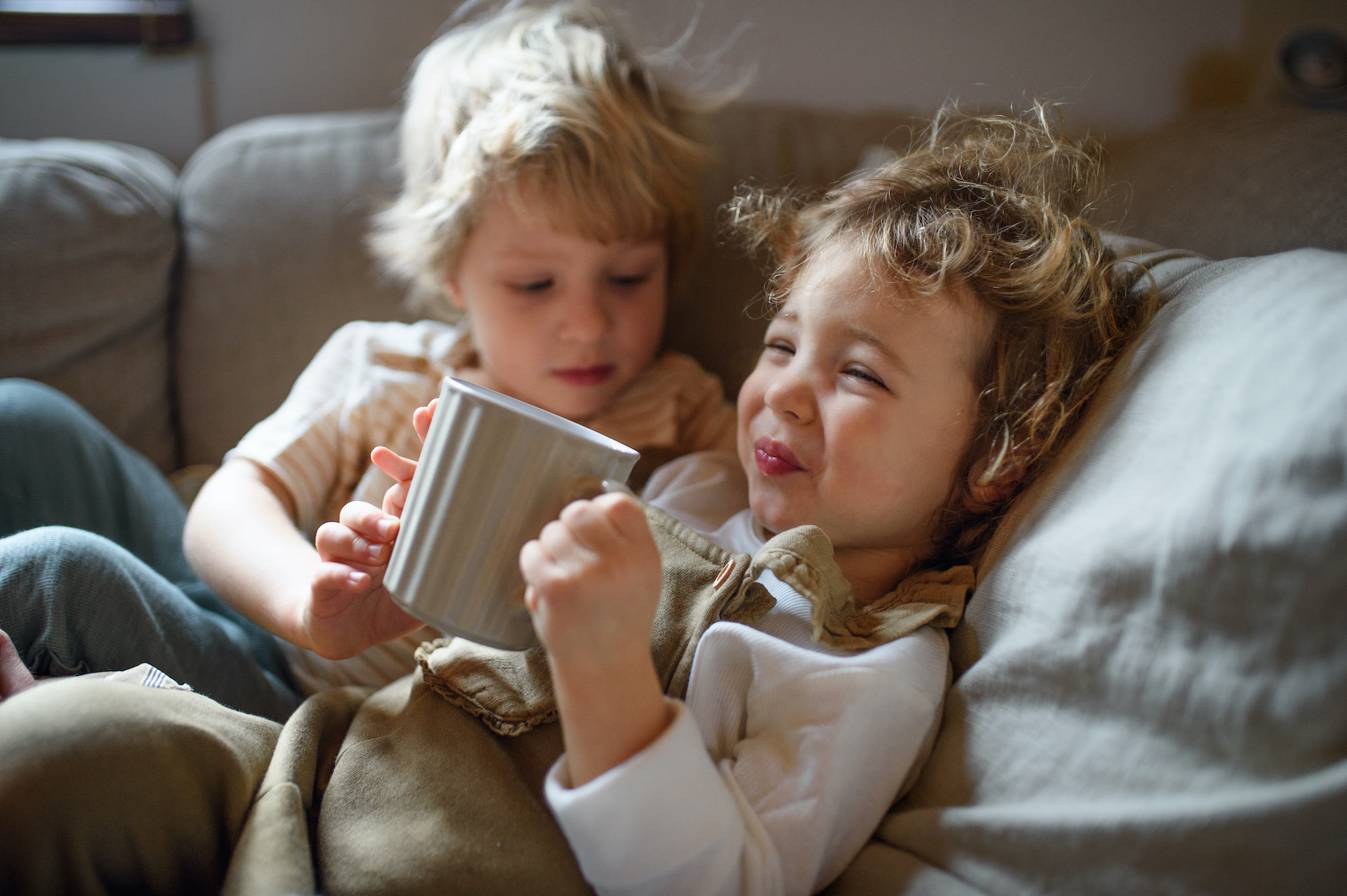
Should Young Kids Drink Tea? What Parents Need to Know
What’s more instantly soothing than a cup of tea? Tea warms the body, eases cold symptoms, settles stomachs, and serves as a comforting ritual at bedtime — or any time. And that’s not just true for grownups: Kids can benefit from drinking tea, too. But parents shouldn’t take the same approach to brewing their kids’ cups just the same as they do their own.
Here’s what to know about tea for kids, including what types are best for common ailments, and how to prepare it safely:
Benefits of tea for kids
There’s not much scientific research available on kids and tea. So a consultation with your pediatrician should always be your first step. If the doctor approves, you’re set to go.
Herbal tea is a subtle balm for the common cold. It can help soothe a sore throat and cough, and the steam can relieve congestion. It can also settle the stomach, helping promote comfort after a meal or during times of tummy distress.
“Tea has many benefits,” explains Dr. William W. Li, a physician and author whose work focuses on eating for good health. “It can be calming, lower blood pressure, improve metabolism, prevent cancer, improve cardiovascular health, help keep the brain sharp, and nurture gut health.”
“Tea is one of the beverages that activates the body’s key health defense systems, including angiogenesis, regeneration, the microbiome, DNA protection, and immunity.”
Even beyond all those clinical benefits, tea is just plain cozy. A warm cup establishes an atmosphere of calm and safety. And it can be part of a soothing bedtime ritual that lowers anxiety levels and triggers sleepy, relaxed feelings.
Top types of teas for kids
- Easy-to-find chamomile is calming and can settle the stomach.
- Echinacea is thought to help boost the immune system. (Kids with allergies to ragweed or similar plants should not take these herbs.)
- Fennel, too, settles the stomach and may relieve gas pain. But unlike chamomile, fennel has a strong, licorice-like flavor that might not appeal to kids’ palates.
- Ginger is anti-inflammatory and can relieve nausea.
- Peppermint has a range of benefits including easing cold symptoms like nasal congestion, as well as settling the stomach.
Best teas for kids at bedtime
In addition to its other benefits, chamomile’s gentle sedative effect makes this tea a top choice at bedtime. Valerian can also help kids sleep. Research published in the journal Phytomedicine supports giving this herb to kids with ADHD/neurodiversity. Kids in the study who took valerian at least an hour before bedtime fell asleep faster, stayed asleep longer and improved their sleep quality. However, note that some other research has shown valerian can trigger the opposite effect in kids, so — as with all tea — start slow and use caution.
There’s not much scientific evidence that peppermint tea promotes sleep, but it can certainly help relax kids before bedtime.
To further establish a peaceful bedtime mood, kids can listen to a soothing audio track while sipping their tea; Moshi offers magical sleep stories and meditations meant just for them. Also try dimming the lights, drawing a bath, or adding aromatherapy to the room with a relaxing essential oil like lavender.
Tips for making tea for kids
Again, consult your pediatrician for the go-ahead. Ask for tips on how long to steep it — just a couple of minutes should do the trick — and how much tea is right for your kid to consume.
If the tea seems too strong, add water. This will also cool it down so it’s safe to drink; it should not be hotter than lukewarm. Herbal teas like the ones named above are generally considered safe for kids. But if you’re using store-bought tea bags, read the label to make sure those ingredients aren’t accompanied by others you don’t recognize or know to be safe. Instead of adding sugar, which can cause tooth decay, try sweetening your child’s tea with just a little honey instead. (Do not give honey to an infant, due to the botulism risk.)
“Tea is inherently healthy because of the many bioactive, such as EGCG [the plant compound epigallocatechin gallate], in tea leaves,” Dr. Li explains. “But sweetening the tea with sugar is really not a good idea — not only does it destroy your teeth, but the added sugar itself is detrimental to your overall health.”
He also suggests keeping the milk out of your kids’ tea. “Adding milk to tea, while a tradition, also is not beneficial,” he says. “The milk interacts with the healthy bioactives and makes them less available to the body.”
And definitely check to verify your tea is caffeine-free; if not specifically labeled, don’t take the risk. “Caffeine can cause jitters and interfere with sleep,” Dr. Li says while acknowledging that kids in some cultures do drink “mild teas with lesser amounts of caffeine from a very young age.”
For other ways to help kids relax, try these natural sleep aids or other calming techniques.